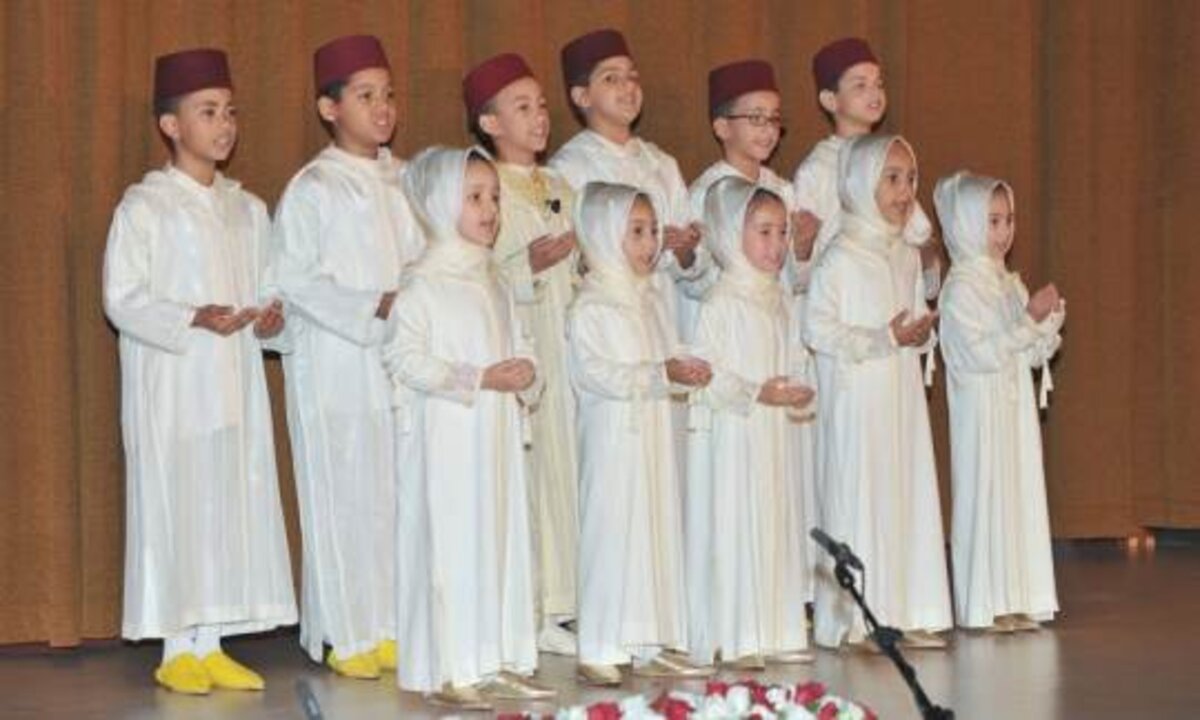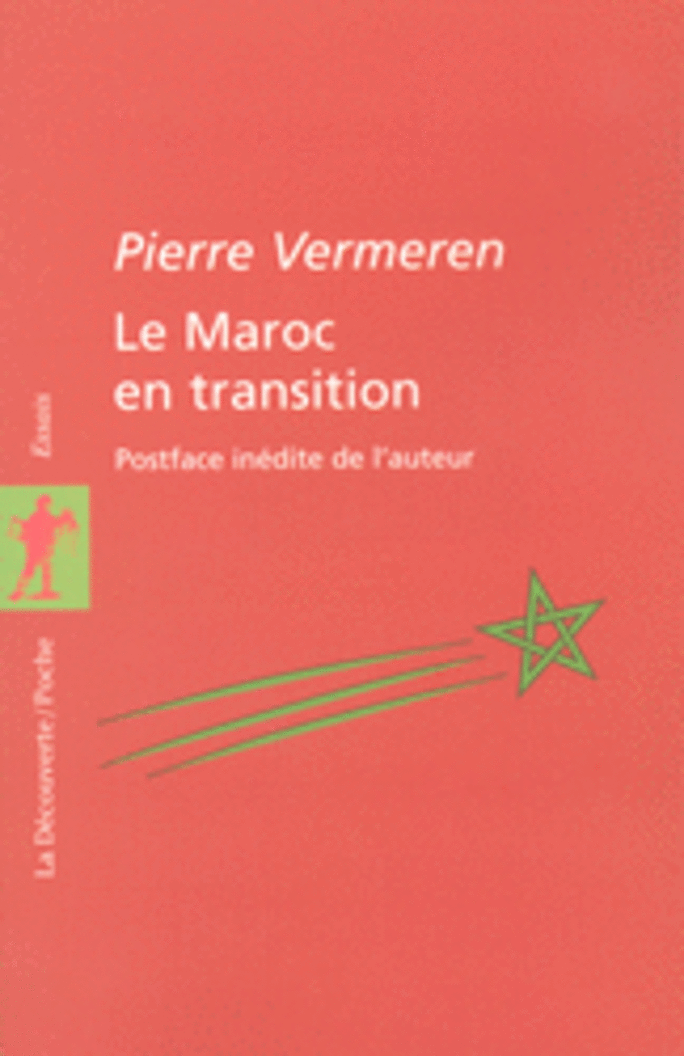It is a very select institution, nestled in the heart of one of the best-known palaces in the Moroccan capital Rabat. Amid close surveillance, the Royal College provides schooling for the royal family's children and a handful of other privileged youngsters carefully chosen by the regime. And every year France discreetly sends the school several teachers on secondment from the French national education system.
The process is taking place once again this year. The subject was raised in advance of President François Hollande's state visit to Morocco at the start of April, when the French head of state praised the “stability” of the monarchical regime there. The president asked his education minister Vincent Peillon to send three teachers to the North African country for the new school year which starts in September. The minister, who is struggling to recruit enough teachers in France, reportedly grimaced at the request but complied.

And so, according to information received by Mediapart, the French education department is currently working in conjunction with the foreign ministry to find three teachers for the next academic year, one in history and geography, the second in mathematics and the third in earth sciences and technology. In theory the candidates can be either fully-qualified or 'certifiés' teachers, or what are known as 'agrégés' teachers, meaning those who have passed the 'agrégation' examination entitling them to teach at any level in the education system. In practice, however, they are all likely to be 'agrégés'. The chosen teachers are placed on secondment, though the posts are also open to newly-retired teachers. In either case they work under a local year-long renewable contract.
There are currently two French teachers working at the Royal College, continuing a long tradition of educational cooperation between the two nations. The only change planned for this year is that the teachers' salaries, which until now have been paid by the French government, will now be met entirely by the Moroccan authorities who vet the candidates submitted by Paris.
When questioned about the subject the education ministry referred Mediapart to the French foreign ministry, which declined to comment. There is a reason for that; this is a sensitive issue, as is everything that relates to the Moroccan monarchy.

The Royal College, which is in the same building as the country's government offices, was founded by Mohammed V for his son, the future Hassan II, in 1942. “Served by French, Spanish and English expatriate primary and secondary teachers, and by Moroccan teachers, the Royal College works on the model of French lycées, with a greater emphasis on teaching in the Arabic language and in the history and geography of Morocco,” writes the historian Pierre Vermeren in his book Le Maroc en transition ('Morocco in transition') published by La Découverte in 2004 (see image left).
Since its creation the children of the country's monarch, as well as those from the wider royal family, have been educated there from nursery school right through to the baccalauréat, an exam which is broadly equivalent to an A-level in the English education system. The college also educates a handful of other children from across the country who are identified by the royal palace and handpicked to form the ruling elite. Traditionally the classes contain around a dozen pupils and are created in line with the age of the king's children and other members of the extended royal family.
'A tiny fraction of the Moroccan elite...but the most important'
It was at this exclusive college that current king Mohammed VI met a number of the advisers who were working with him in 1999 when he acceded to the throne on the death of his father Hassan II. This was true of Hassan Aourid, who was once an official spokesman for the king – he has since been removed – Noureddine Bensoud, head of the country's treasury, Rochdi Chraïbi, the king's chief of staff, and the controversial Fouad Ali El Himma, the “king's friend” and close adviser who was a target of the protests that took place in Morocco in February 2011 as part of the wider Arab Spring revolution. “The Royal College students are a small fraction of the Moroccan elite,” explains an observer who knows the regime well. “But it is the most important part because it forms the king's entourage.”
The current king's ten-year-old son Prince Moulay El Hassan attends the college, as does the monarch's six-year-old daughter Princess Lalla Khadija. They can be seen in a video (see below) of a celebration marking the end of the 2011-2012 school year, at which their parents were present, and which was also reported by the official Moroccan press agency the Agence Marocaine de Presse (MAP). “The ceremony, which took place in the presence of Their Royal Highnesses and their Highnesses, the princes and princesses, began with His Royal Highness the Crown Prince Moulay El Hassan reciting verses from the Holy Koran, followed by prayers and invocations spoken by His Royal Highness and his classmates,” reported the agency. “His Royal Highness the Crown Prince Moulay El Hassan then gave a speech in front of His Majesty King Mohammed VI, in which he expressed his immense joy and his pride at the great kindness and concern which the Sovereign had bestowed upon this ceremony.”
According to an article that appeared in the Moroccan news magazine TelQuel in 2010 “Moulay El Hassan's class [at the time contained] five pupils, handpicked but about whom we ultimately know very little. By what criteria were they chosen? Will they be with [the crown prince] right up to the baccalauréat? A mystery....” The article adds: “In the Royal College two teams look after Smit Sidi's [editor's note, this is the affectionate term used for the eldest son in the royal family] class. The first is made up of language, maths, history and religious education teachers. The second is entirely dedicated to the supervision of extra-curricular activities of the class containing the crown prince...who has not yet shown a real fondness for a particular activity.” The article highlights once again the air of mystery surrounding the Royal College.
Silence is also the order of the day with the French authorities over its dealings with the college. Yet France has established a great number of partnerships with foreign establishments in the world – in addition to its network of overseas French schools – which it publicises without any problem. Around a thousand teachers are currently in such posts. According to the French authorities the system contributes to maintaining the influence of France and the French language in the world. The same could be said of the link with Morocco where the education of the royal family should help to maintain a privileged relationship with the former French protectorate. That was also the case in Tunisia where France had signed an agreement with the International School in Carthage where the son of Zine El Abidine Ben Ali – the Tunisian leader who was ousted in 2011 – was educated. But that, as with the Royal College in Morocco, was carried out with the utmost discretion.
-------------------------------------
English version by Michael Streeter


